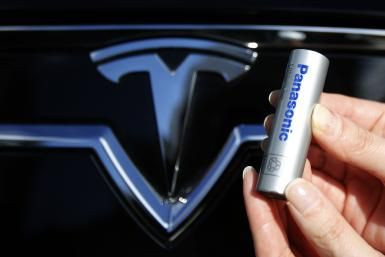What Are Solid State Batteries, And How They Will Shape Power Storage

Battery technology might be working in the background on many of our devices, but it is essential to their functioning as well as that of electric cars and even solar panel systems. But, the current lithium-ion batteries do not carry a high amount of charge and are even a safety risk since they are prone to leaking.
The alternative lies in solid-state batteries, which use solid-electrolytes instead of liquid electrolytes used in lithium-ion batteries. These batteries have been developed by John Goodenough, who was the co-inventor of the lithium-ion battery.
“Cost, safety, energy density, rates of charge and discharge and cycle life are critical for battery-driven cars to be more widely adopted. We believe our discovery solves many of the problems that are inherent in today’s batteries,” Goodenough said in a paper simply titled “Alternative strategy for a safe rechargeable battery” published in the Journal of Energy and Environmental Science in February this year.
These batteries last longer and charge faster and can be easily used in devices, cars and even for power storage. More importantly, they will also be cheaper than present lithium-ion batteries, which might be a boon for electric car owners, who currently need to spend a lot to replace their car batteries.
Read: Samsung Galaxy S9 To Have Non-Exploding Solid State Batteries, Report Says
While lithium-ion batteries can overheat, swell and leak causing a fire hazard due to the liquid present inside, solid state batteries undercut the risk of explosion by incorporating solid electrolytes. They can also use alkali-metal positive terminals, which isn’t possible with traditional batteries, which in turn increases the energy density of the negative terminal of the battery.
These batteries will also have high-conductivity at cold temperatures, which means they will be more reliable in functioning in subzero climate, which is important for their use in both electric cars and smartphones.
Companies such as the smartphone giant Samsung and car maker Toyota are working on the technology. According to the Korea Herald, Samsung’s process for making solid-state batteries will mature in one or two years, which means that it is possible the company’s next S-series flagship, the S9 might feature one. Toyota, as reported by the Wall Street Journal on Tuesday, is actually scaling up a similar model for electric cars and expects that its batteries might be used in production-scale electric vehicles by 2020.
Read: Phone Battery Dying Could Be History With This Prototype That Doesn't Need One
Solid-state batteries are also easier to develop and should be available to companies who want to incorporate them in their products soon, according to Choi Jung-deok, an analyst at the LG Economic Research Institute, South Korea.
Solid-state batteries herald the biggest improvement in battery technology in a long time. They are expected to improve the speed of deployment of electric vehicles and other applications which need high energy density and improved energy storage.
© Copyright IBTimes 2025. All rights reserved.



















